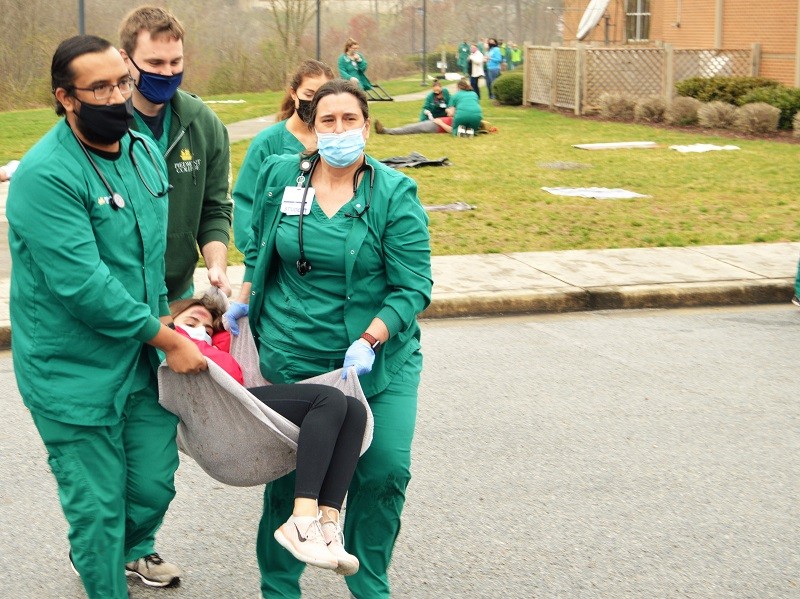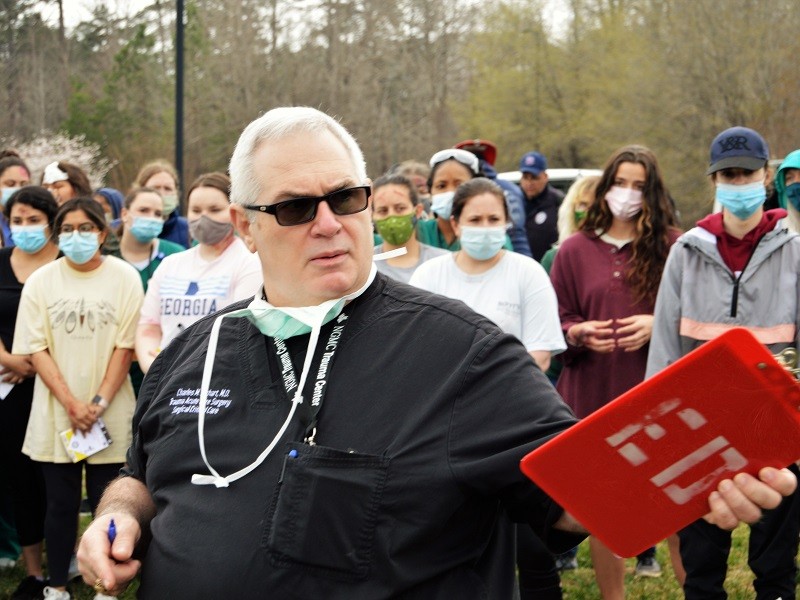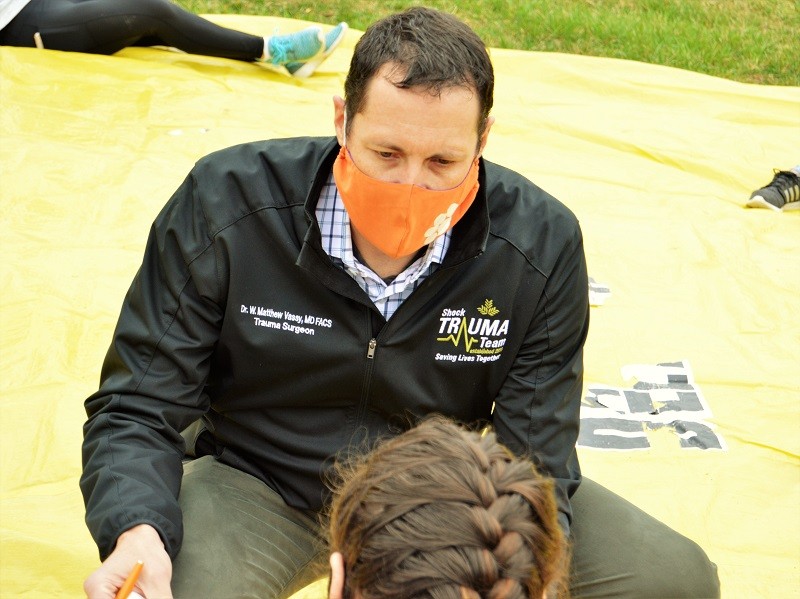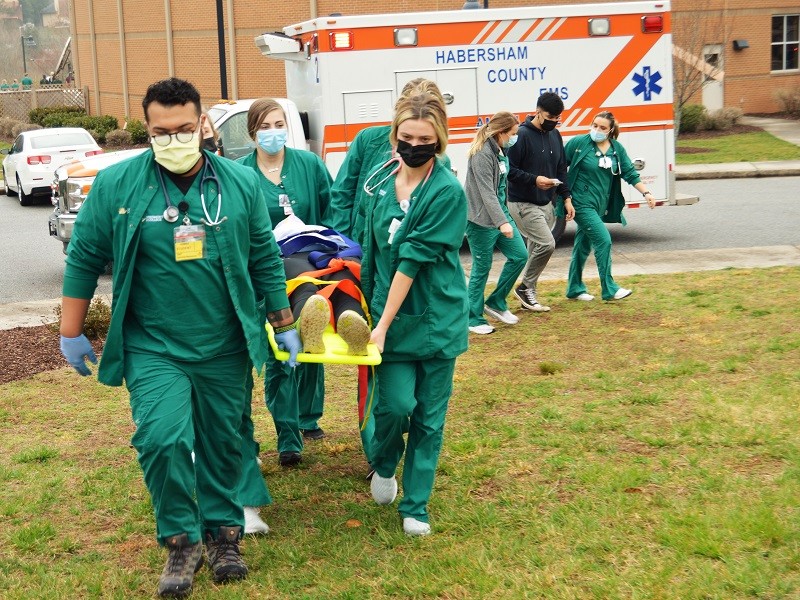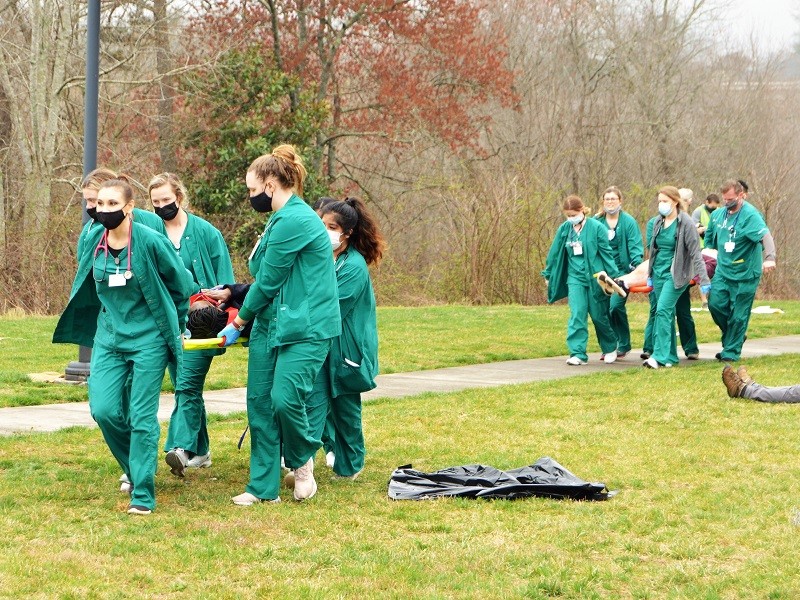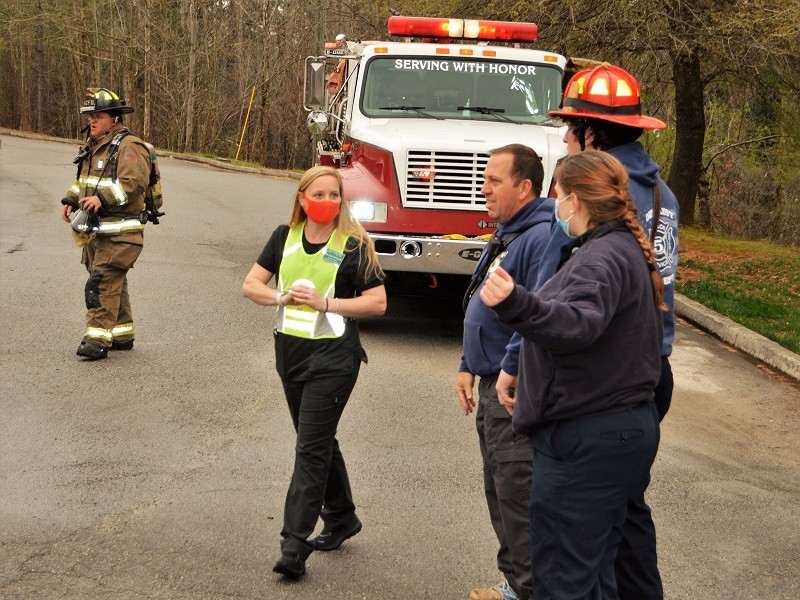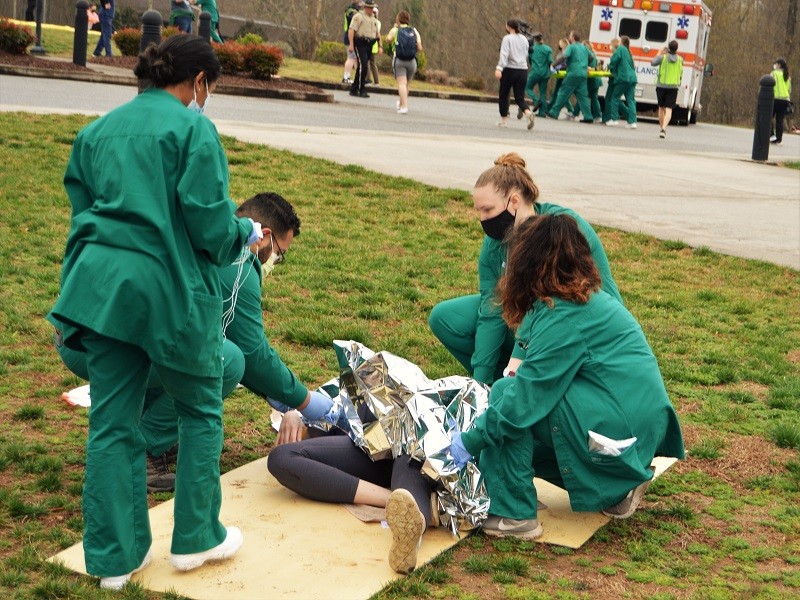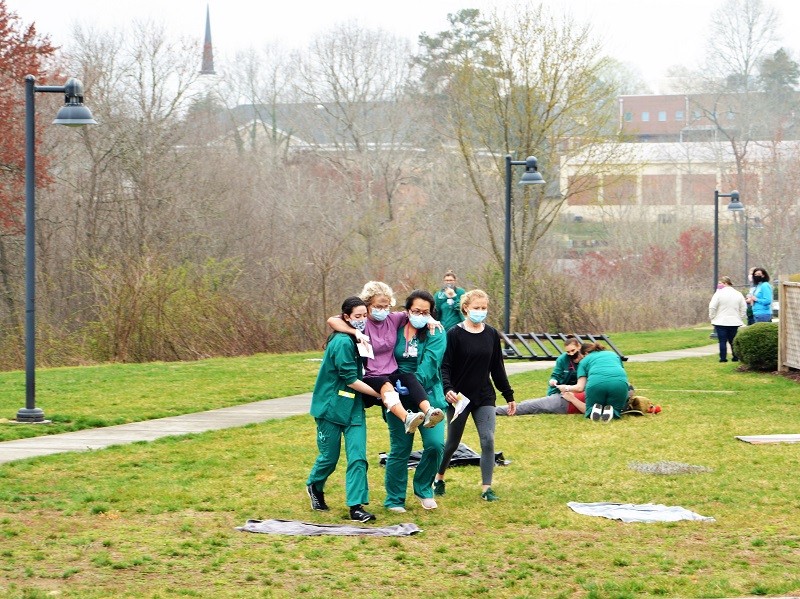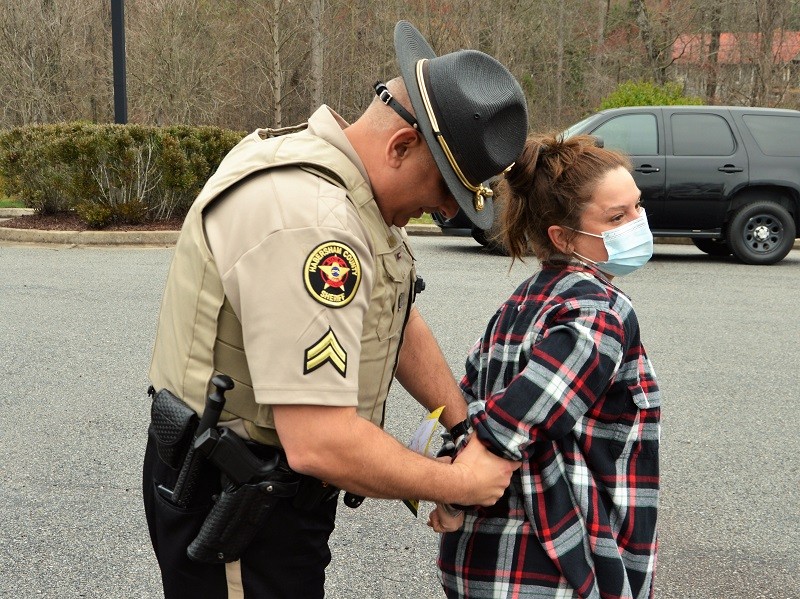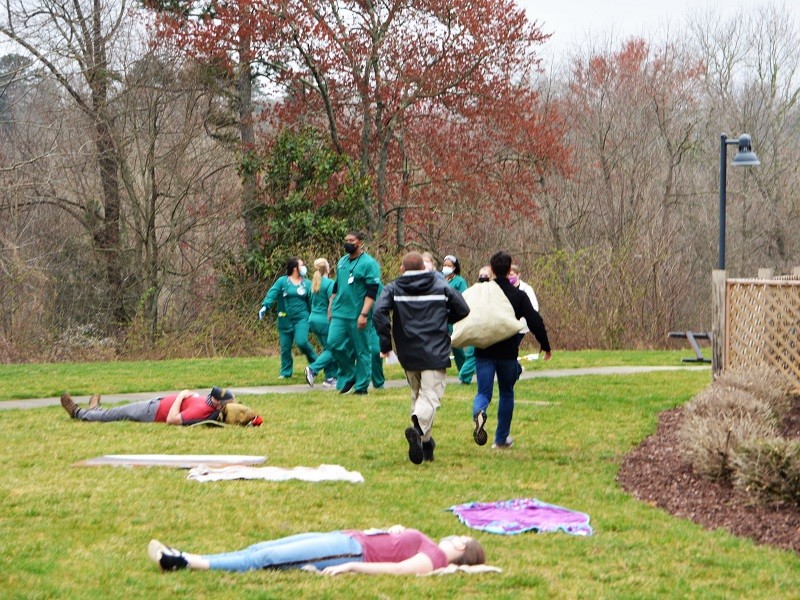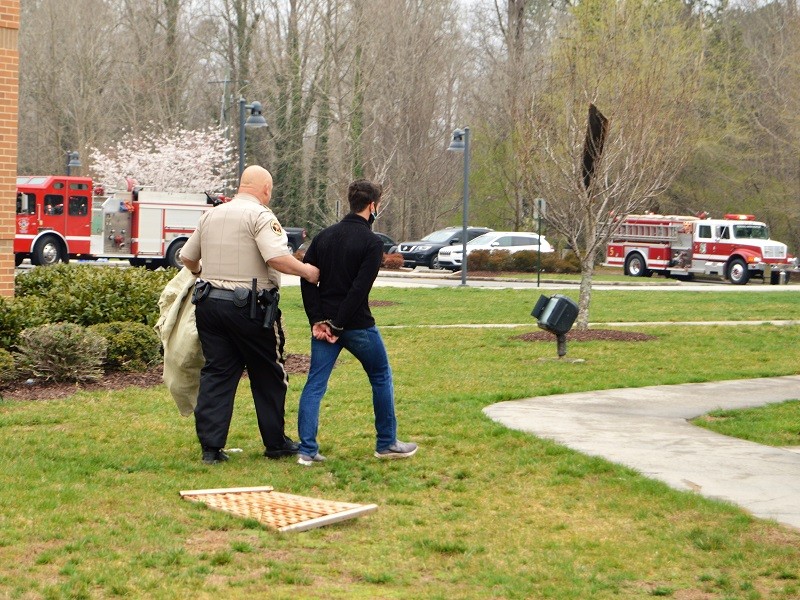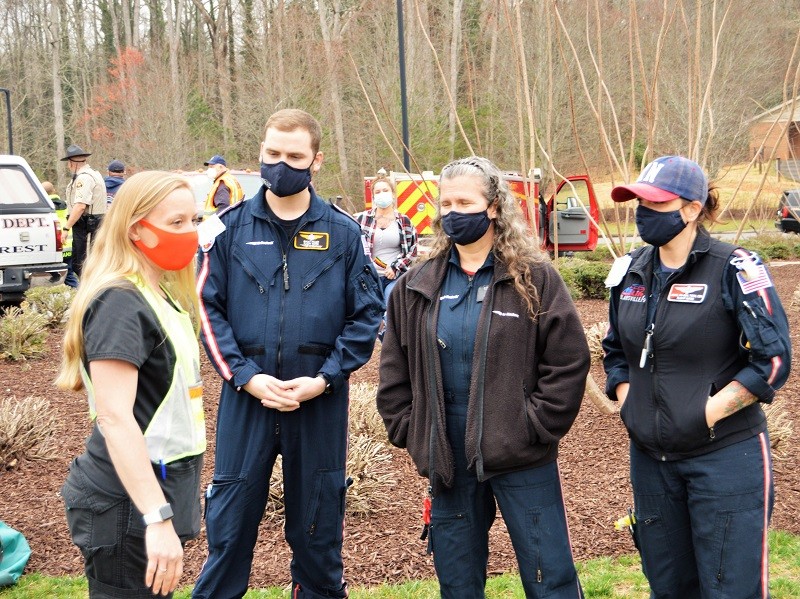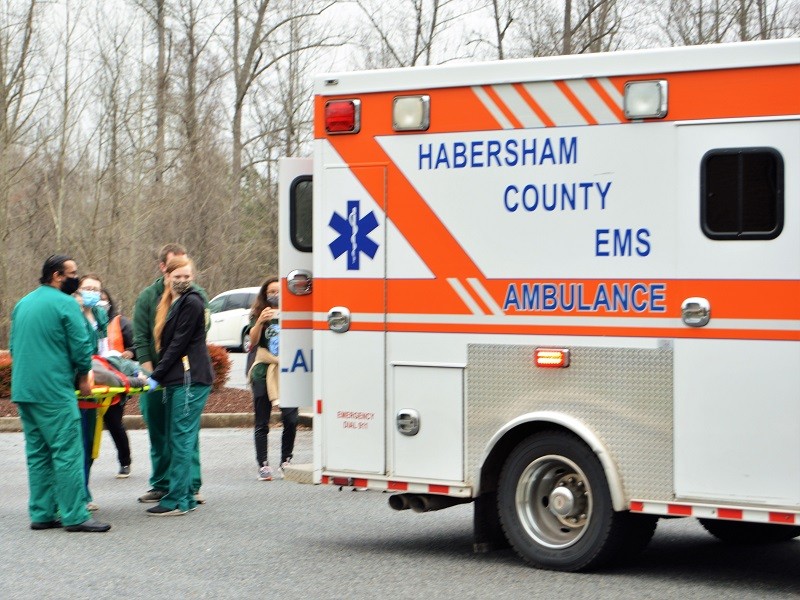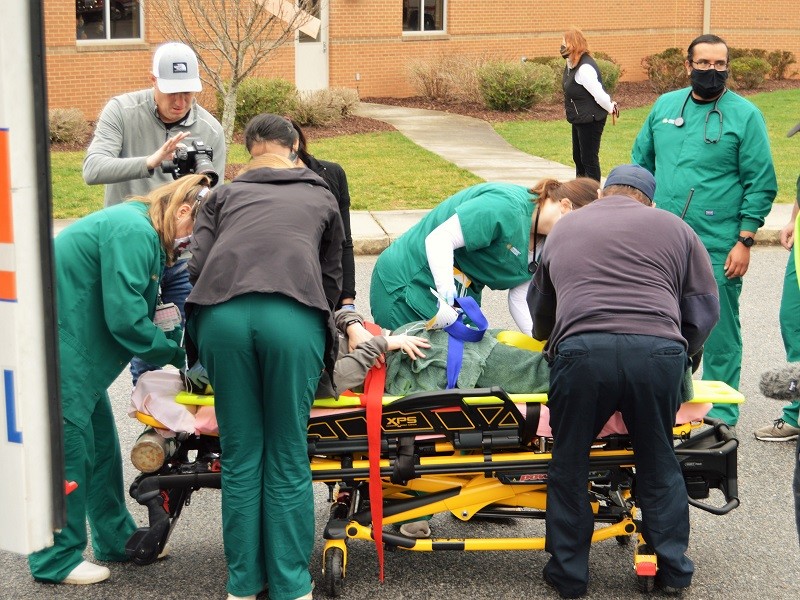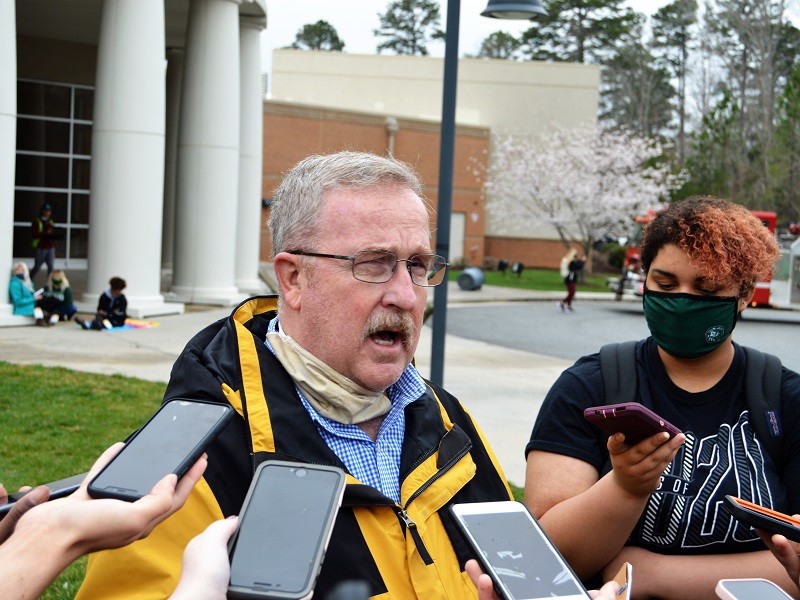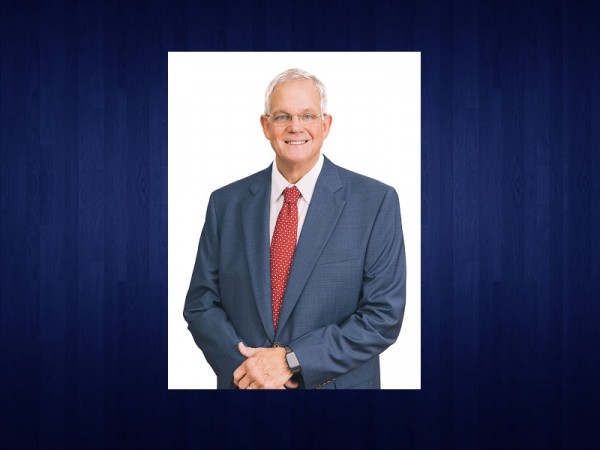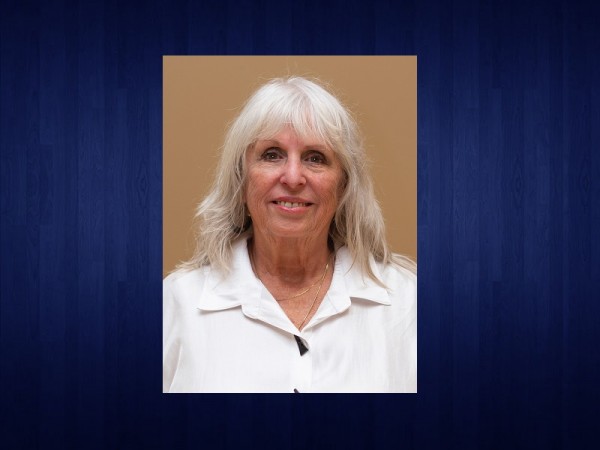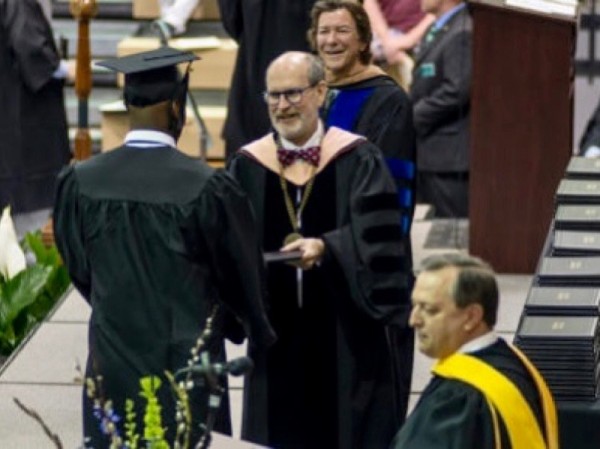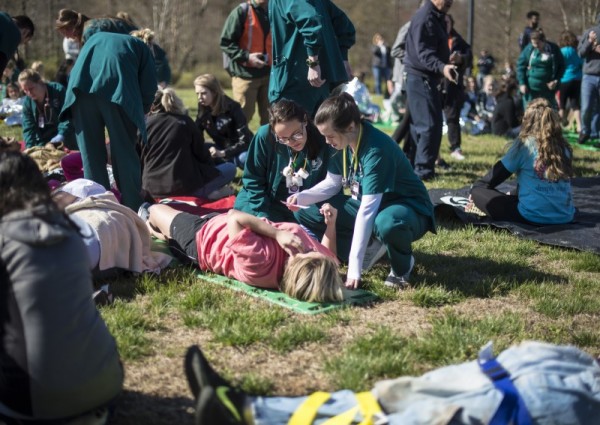DEMOREST – A simulated tornado struck the Swanson Center at Piedmont College Wednesday morning, triggering a response from emergency personnel from throughout Habersham County and beyond.
The scenario included severe damage to the building that resulted in dozens of injuries and some deaths.
Piedmont College Assistant Vice President for Facilities Management and Safety Fred Bucher told student media during a press conference that the tornado came without warning.
“The huge rooftop air conditioning units were toppled and shorted out and caused a rooftop fire,” said. “It caused the ceiling to collapse and that’s where all the major casualties have come from is debris falling from inside the Swanson Performing Arts Center. We have approximately 70 victims. Unfortunately, we have 10 deceased, and we have 15 that are critical. The rest are cuts and scrapes and just regular minor injuries.”
Bucher said there are about four levels of roofing on the building and roughly 25 rooftop air conditioning units.
“And if a big windstorm or tornado did come and blow those over, they’re all 200 or 400 amps, so you’ve got 400 amps of electricity that could be exposed if one of those gets knocked over, and until you get the electricity cut off, those are live,” Bucher said. “They’re heavy units, so they drop through the ceiling and then they drop through the secondary ceiling and that’s where we’re sort of saying all these injuries came from is debris that came from above before the students were able to get out of the building.”
At the conclusion of the drill, Dr. Charles M. Richart of Northeast Georgia Medical Center’s trauma acute care surgery and surgical critical care talked with the student nurses.
“In a trauma situation, we do everything for the patient, no matter what, to keep them alive and yet in a disaster situation you do everything you can for the most people,” Richart said. “And you cannot do everything for everybody.”
Richart told students that in their careers when they find themselves in a situation where a negative outcome for the patient is certain, such as a victim of a mass casualty incident who will not reach care in time, compassion is key.
“Touch them, hold their hand, don’t let them die alone,” Richart said.
Habersham County Emergency Services Director Chad Black and his staff participated in the exercise.
“This has been an annual, probably for 10-plus years now and it’s a great opportunity for all of our emergency services personnel and various departments and law enforcement in the county to get with Piedmont and this huge nursing class and use their skills to work together and work from a mass casualty type incident,” Black said. “You want to identify areas of improvement here versus when it really happens.”
Simulated injuries and the size of the incident are designed to overwhelm initial responders, just as they would be upon arriving on a real scene of that magnitude.
“You’ve got an engine company and an ambulance that arrives, and they’re faced with 70-80 patients you’ve got to triage and people running everywhere,” Black said. “It puts some real into it, versus a tabletop exercise, so the training is invaluable and the partnerships that we have. We’ve got surgeons here and the trauma team from Northeast Georgia [Medical Center] that on a large scale, that could happen. It takes us all if something happens.”
Piedmont College Associate Professor of Nursing Karen Greilich coordinates the drill, working with community partners, including local emergency responders, District 2 Public Health, AirLife Georgia 2 and others.
“I think overall today went very well,” said Greilich. “We had a lot of involvement. We had about 70 victims and 80 student rescuers.”
The victims are juniors from the nursing program and some health sciences classes.
“The seniors are the rescuers, who are student rescuers who assisted with police, fire, and EMS, and also with trauma and acute care services from Northeast Georgia to work together for this simulated tornado and resulting fire,” Greilich said. “I think everyone worked well together. There’s always something to be learned. There’s always something that can be done better but, overall, they worked with lots of different professionals. A lot of the interprofessional communication is something that the students are learning, because they’re getting ready to enter the real world and you never really know when disasters will strike and who will be involved, so this will give them an idea of how to help.’
Bucher said the introduction of doctors into Wednesday’s drill response is something he believes is invaluable.
“We do have some triage doctors here with us today as part of the exercise, and also that would be a scenario where we would probably see a doctor or two out here, because the college has no medical doctors,” Bucher said. “We have lots of great nurses, but we don’t have any medical doctors. So hopefully one of the first responders from Habersham Medical Center would be an M.D., because we would definitely need an M.D. to help make some of these decisions.”
Bucher said practicing response skills is important for both emergency personnel and the college.
“We’re probably one of the largest concentrations of humans in a small space, so if we were to get a real-world scenario like a tornado, we could have a lot of people injured,” Bucher said. “The scenario for this one was we had some swirling clouds but there had not been an actual tornado warning in effect. We hope that doesn’t happen – we hope we’ll get warning, but we’re playing this as if we had no warning.
“We had a large group of students in here during their regular Wednesday classes,” Bucher said. “Monday/Wednesday classes are some of the biggest in this building and a lot of other buildings.”
Last year’s nursing drill was canceled due to the COVID pandemic, but officials made the decision to proceed with this year’s scenario with safeguards in place.
“For those of you that might have been here two years ago, there’s a little more artificiality this year than we had previous because you have to make more exacting coordination, so nobody gets exposed,” Bucher said. “This one might have been a little more scripted and a little less free play.”
Still, the drill included disruptive participants that kept law enforcement personnel busy, including one who played the role of a thief who stole possessions of injured victims.
“These are the type things we’re going to train for and then pray that it never happens, and you’ve got to use these skills,” Black said. “This type of training is the next best thing to the real thing.”


